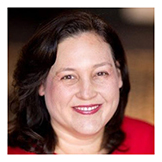 Piper Meyer-Kalos, director of research and evaluation at the Center for Practice Transformation in the School of Social Work will present “How Can Positive Psychology Interventions Benefit Treatment for First Episode Psychosis?” at the Research Dinner of the National Alliance on Mental Illness (NAMI) Minnesota. The dinner will be Wednesday, February 26, in Minneapolis. Meyer-Kalos was instrumental in developing the NAVIGATE Program in Minnesota. NAVIGATE is an integrated treatment model for detection and treatment of First-Episode Psychosis. Visit the NAMI MN website for more information.
Piper Meyer-Kalos, director of research and evaluation at the Center for Practice Transformation in the School of Social Work will present “How Can Positive Psychology Interventions Benefit Treatment for First Episode Psychosis?” at the Research Dinner of the National Alliance on Mental Illness (NAMI) Minnesota. The dinner will be Wednesday, February 26, in Minneapolis. Meyer-Kalos was instrumental in developing the NAVIGATE Program in Minnesota. NAVIGATE is an integrated treatment model for detection and treatment of First-Episode Psychosis. Visit the NAMI MN website for more information.
Lightfoot receives highest honor in academic social work
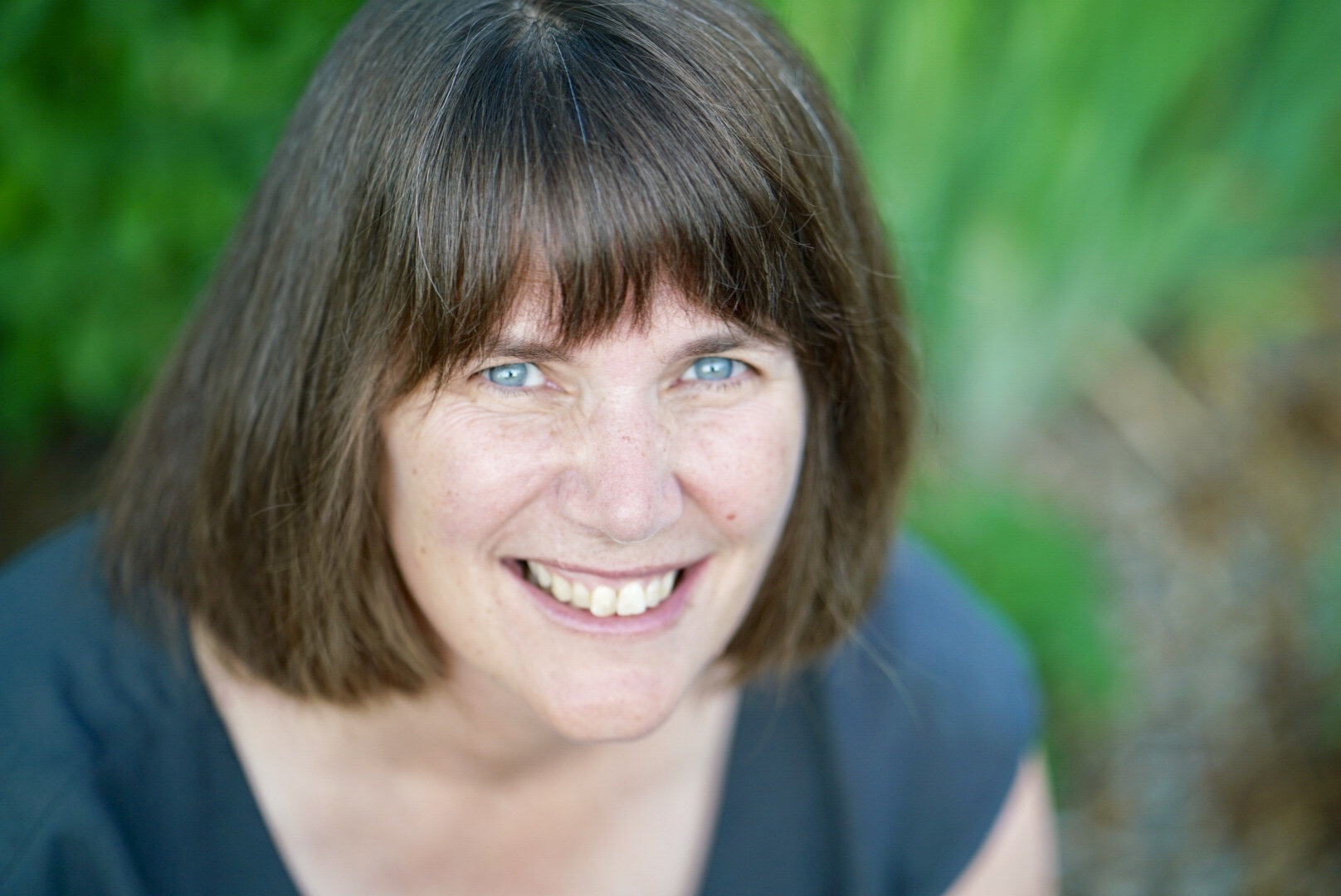 School of Social Work Professor Elizabeth Lightfoot has been named to the American Academy of Social Work and Social Welfare, academic social work’s highest honor.
School of Social Work Professor Elizabeth Lightfoot has been named to the American Academy of Social Work and Social Welfare, academic social work’s highest honor.
The academy‘s aim is to celebrate excellence in social work and social welfare by recognizing outstanding research, scholarship, and practice that advance the social good.
Lightfoot’s research centers on disability policy and services, with a focus on the intersections of disability with child welfare, aging, disparities, and abuse. She has published 110 peer-reviewed articles and other publications.
Her research has received funding from a variety of federal and local sources, most recently from the National Institute on Disability, Independent Living, and Rehabilitation, and the Minnesota Agricultural Extension Service. Her research findings have been used as evidence the creation of national policies involving disability.
Lightfoot also has been a national leader in the academic social work profession, serving as the president of the Group for the Advancement of Doctoral Education in Social Work (GADE), the secretary of the Society for Social Work and Research, and a board member for the Council on Social Work Education.
In October 2019, she received GADE’s Faculty Award for Educational Leadership in Doctoral Education in recognition of her work to expand GADE’s efforts to build the capacity of doctoral programs and promote doctoral education across North America.
She has also been active internationally, receiving two year-long Fulbright Scholar awards. In 2008, she spent a year at the University of Namibia, where she developed an internship collaboration in which she takes a group of University of Minnesota master’s of social work students to Namibia each summer to complete an internship program.
She just returned from her second Fulbright, serving as the Senior Fulbright Social Science Scholar at the University of Bucharest in Romania, where she taught doctoral students and conducted research on disability and social work related issues.
Lightfoot was not aware that she had been nominated for this high honor until she received an email notice a few days ago.
“I was very surprised and humbled to learn that I was selected to join the AASWSW. It is a huge honor to be included in the academy, both for me and the University of Minnesota. I look forward to collaborating with other fellows to ensure that our social work research leads to substantive policy change,” she says.
The induction ceremony will be held on January 17, 2020, during the Society for Social Work and Research annual conference in Washington, D.C. Lightfoot will join two School of Social Work colleagues who have received this honor, Professor Rosalie Kane, who was inducted into the academy in 2012, and Professor Emeritus Jeffrey Edleson, who was inducted in 2011.
Esther Wattenberg passes away at 99
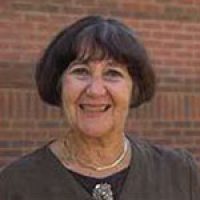 Esther Wattenberg, a longtime professor of social work and a member of the Center for Urban and Regional Affairs, passed away on July 19 at the age of 99. She was a fierce advocate for underserved women and children. Among her many achievements is the Center for Advanced Studies in Child Welfare (CASCW), which she co-founded at age 73, when most people are considering or already in retirement, and served as its first director.
Esther Wattenberg, a longtime professor of social work and a member of the Center for Urban and Regional Affairs, passed away on July 19 at the age of 99. She was a fierce advocate for underserved women and children. Among her many achievements is the Center for Advanced Studies in Child Welfare (CASCW), which she co-founded at age 73, when most people are considering or already in retirement, and served as its first director.
As part of its 20th anniversary celebration, CASCW published a booklet of editorials written by Wattenberg. The foreword notes her “exceptional talent for succinctly, astutely, and, when necessary, sharply, getting to the heart of challenging issues in the field. She posed thought-provoking questions, encouraged critical thinking and discourse, and challenged everyone from community members to practitioners to politicians to take responsibility for the outcomes of vulnerable children in our society.”
During her tenure in social work, she taught three generations of students the importance of child welfare both as a social good and as a wise career choice. As an academic, Wattenberg saw an inextricable connection among research, practice, and policy. There was no point in doing research in her field that didn’t connect back to the lives of children and families.
In order to change policy in child welfare, Wattenberg went right to the source. She would talk to social workers in the field and hear what they were struggling with. By traveling all over the state, visiting counties rural and urban, she knew exactly where the most pressing issues were. She also was famous for bringing social workers together for a series of conferences. She and the audience were surprised to find that there were gaps in the conversation. In many places, school social workers were not seeing eye-to-eye with county social workers. Wattenberg got them talking simply by putting them in the same room. The results of these meetings gave her good ammunition when she next visited lawmakers. She was a master of translating a good story into policy.
In a paper called “Notes from a Cluttered Mind: Recollections from a Late Stage of Life” that she wrote as an afterword to comments she made at a School of Social Work 100th anniversary event in 2016, she issued a challenge:
“For the best and brightest (students in Child Welfare), the challenge awaits your dedication to the pursuit of improving life chances for the children with problematic futures. Each new year opens with a stern command: Improve the life chances of children born into high-risk families. Construct the escape route for children born into high-risk families.”
Her funeral has been held. Her family asks that memorials to be given to the Esther Wattenberg Fellowship in the School of Social Work at the University of Minnesota. Give online at https://z.umn.edu/EstherWattenbergFellowship. Read the Star Tribune story about Wattenberg.
Youth studies summer interns examining how St. Paul youth spend their after-school time
Deborah Moore, youth studies faculty member and associate director of the Youth Work Learning Lab, is working with two high school interns on an evaluation project this summer to study what young people in St. Paul typically do after school versus what they would like to do after school.
The students, Michelle Ramirez and Mushtak Barqab, are part of the Minneapolis YWCA Girls Inc. Eureka!®, a five-year summer and school year program for girls interested in STEM (science, technology, engineering and math) fields. The University of Minnesota partners with the program to offer summer interships to girls who are in the last two years of the program.
The girls are interviewing people ages 12 to 18 to gather data and stories that illustrate what it is like to be a young person during after school time.
They are designing the interview questions, conducting the interviews, and analyzing the data, and will create a preliminary report of what they heard.
“These bright young women have jumped into the world of research and have already captured some powerful stories that contrast what young people have to do versus what they want to do after school,” Moore says.
In addition to learning how young people spend their after-school time, the interviews are aimed provide insight into the pressures and stress young people face, and to find out what kinds of spaces communities could provide to help young people thrive. This The girls’ project is a part of a larger effort with Sprockets, the St. Paul afterschool network called “Listen Up!”, a citywide evaluation project to learn about young people’s experiences during after school time. The report from the projects will go to St. Paul’s mayor, city council, afterschool programs and others interested in how to support and engage young people in the community.
MSW alum helps kidnap victim Jayme Closs
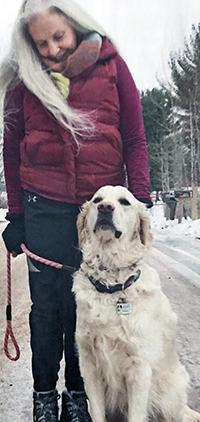
When 13-year-old Jayme Closs escaped January 10 from her kidnapper after nearly three months in captivity in western Wisconsin, she ran to a woman walking her dog nearby. The woman was Jeanne Nutter, MSW ’04, who immediately brought Closs to safety and called 911.
“I can tell you that I have never been so proud to call myself a social worker,” Nutter wrote to MSW program director Megan Morrissey. “This is what we do! Although I have not done direct practice in a long time, those skills stick with you […] I cannot tell you nor thank the U of M enough for providing me with the foundation that enabled me to be the best I could be for Jayme … It was a huge privilege to play a small part in getting her to safety … Such amazing instructors I had.”
DAV funds social work scholarship for veteran
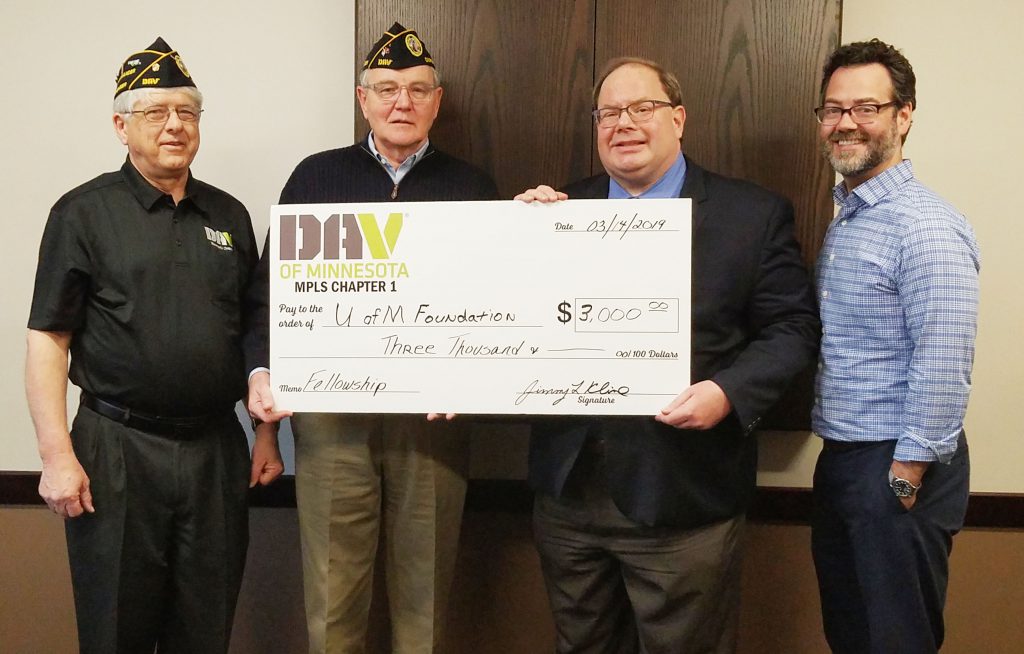
The Disabled American Veterans of Minnesota, Minneapolis Chapter 1, donated $3,000 the School of Social Work in March. The school plans to honor the generous gift by using the funds for a scholarship for current and incoming master’s of social work students who are veterans.
DAV Chapter 1 is dedicated to “empowering veterans to lead high-quality live with respect and dignity,” according to commander Jim Klein. The chapter, which was charted in 1922, has 3, 400 members. It works to ensure veterans and their families can access the full range of benefits available to them; fights for the interests of America’s injured heroes on Capitol Hill, and educates the public about the great sacrifice and needs of veterans who are transitioning back to civilian life.
The chapter provides financial aid and volunteer assistance to organizations like the Veteran’s Administration Medical Center, Minneapolis Veterans Home, Fort Snelling Cemetery Memorial Rifle Squad, and two service dog training organizations. It also works with county, state and DAV veterans service officers to assist with the needs of individual veterans. The financial aid for these programs is obtained from contributions.
John Bricout, director of the School of Social Work, said the DAV scholarship “will significantly assist an MSW student who is a veteran in their field work.”
MSW field director MJ Gilbert said applicants will be asked to write a short essay describing how their experiences in the military inform their decision to pursue social work, and how they hope to translate those experiences and perspectives into effective social work practice. In addition, at least one letter of support from an individual familiar with the applicant’s background as a social service practitioner and/or in the military, will be required.
In addition, Gilbert said, at least one veteran, either a faculty member or a field internship supervisor, will be included in the group of reviewers that makes the scholarship award decision. The plan is to award the entire amount to one student this year.
Community faculty positions posted in School of Social Work
The School of Social Work is looking for community faculty members to teach Fall 2018 and Spring 2019 semester courses. in social work and youth studies. The list of classes that need instructors and the link to apply are on the school’s website.
M.S.W. Grad Partners with Community to Study Sex Trafficking Concerns
Since graduating with a Masters of Social Work degree from the University of Minnesota’s School of Social Work in 2015, Christina Melander has worked as a research fellow at Robert J. Jones Urban Research and Outreach-Engagement Center (UROC) to identify sex trafficking trends throughout Minnesota. She hopes to expand her work to lead independent research that furthers scholarship for social justice. Read more about Melander on the UROC website.
School of Social Work December 2016 Research E-Newsletter
New Faculty Member Waid Working to Prevent Need for Foster Care
 Jeffrey Waid, who joined the School of Social Work as an assistant professor this fall, began his journey into social work as a child welfare caseworker. Working with families in their communities, he sought to prevent the recurrence of child maltreatment and placement of children into foster care.
Jeffrey Waid, who joined the School of Social Work as an assistant professor this fall, began his journey into social work as a child welfare caseworker. Working with families in their communities, he sought to prevent the recurrence of child maltreatment and placement of children into foster care.
While foster care placement is sometimes necessary to ensure the safety of children experiencing abuse and neglect, lengthy stays in care have a detrimental impact on a child’s development. “Foster care placement is a short term, child-focused solution to what are inherently family problems,” he says. Read more>>
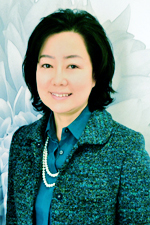 Lee Receives CDC Grant for App on Vaccination Protocol Compliance
Lee Receives CDC Grant for App on Vaccination Protocol Compliance
Professor Hee Yun Lee is principal investigator for a $450,000 Special Interest Project Research grant from the Centers for Disease Control and Prevention (CDC). The grant will fund a mobile application intervention for low-income Hmong adolescents to facilitate completion of the HPV (human papillomavirus) vaccine series. Read more>>
Kivnick Book The Big Move Describes Making a Life in Assisted Living
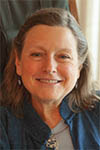 Being required to live in an assisted living facility and learning how to really live there is the topic of Professor Helen Kivnick’s new book, The Big Move: Life Between the Turning Points.
Being required to live in an assisted living facility and learning how to really live there is the topic of Professor Helen Kivnick’s new book, The Big Move: Life Between the Turning Points.
The book was co-written with Anne M. Wyatt-Brown, emeritus associate professor, University of Florida, and Ruth Ray Karpen, professor emeritus, Wayne State University in Detroit.
In the book Kivnick and Karpen, distinguished gerontologists, reflect on Wyatt-Brown’s moving account of her transition from skeptical outsider to active member of a vibrant and sociable community. Read more>>
SSW Outlook Fall 2016 magazine available online
The Fall 2016 Outlook features articles about our 100th anniversary, some of our retirees and the Pet Away Worry and Stress program. We hope you enjoy reading it.
School of Social Work named top-ranked graduate program
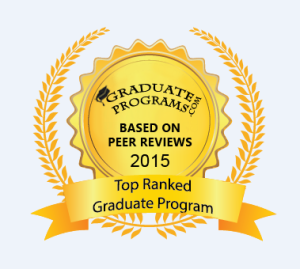 The University of Minnesota School of Social Work was ranked seventh in the Fall 2015 Social Work Grad Rankings by graduateprograms.com. The rankings are based solely on ratings and reviews from current or recent graduate students.
The University of Minnesota School of Social Work was ranked seventh in the Fall 2015 Social Work Grad Rankings by graduateprograms.com. The rankings are based solely on ratings and reviews from current or recent graduate students.
The site assigns 15 ranking categories to each graduate program at each graduate school. The School of Social Work also made the “Dean’s List,” which consists of schools ranking in the top 25 in these categories: career support (11th); social life (12th); grad program value (6th), and financial aid (7th).
Program rankings were compiled using data gathered between September 1, 2012, and September 30, 2015. The site uses social media and scholarship drawings to attract reviewers, and no graduate program is ranked until a minimum threshold of graduate student surveys is completed for that program.
SSW alum named U.S. Ashoka Fellow
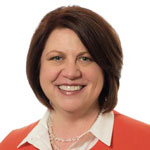 Amelia Franck Meyer (M.S.W. ’01), CEO of Anu Family Services, was named an Ashoka Fellow, joining a network of over 3,000 of the world’s leading social entrepreneurs.
Amelia Franck Meyer (M.S.W. ’01), CEO of Anu Family Services, was named an Ashoka Fellow, joining a network of over 3,000 of the world’s leading social entrepreneurs.
Ashoka Fellows are chosen for having innovative solutions to social problems and the potential to change patterns across society. They demonstrate unrivaled commitment to bold new ideas and prove that compassion, creativity, and collaboration are tremendous forces for change.
Franck Meyer has been CEO of Anu Family Services since 2001 and has built an award winning organization that is achieving nationally leading outcomes in finding permanence for children in out-of-home care. Last year, she shared her message and expertise with system leaders, legislators, front line staff, educators, and students across Minnesota, Wisconsin and 15 other states. Being an Ashoka Fellow will give her an opportunity to build on this growing momentum and desire for much needed systems change across the country.
Anu Family Services has offices in St, Paul Minnesota and Hudson, Madison and Eau Claire, Wisconsin. Learn more about Anu on their website.
Ashoka is the largest network of social entrepreneurs worldwide, with nearly 3,000 Ashoka Fellows in 70 countries putting their system changing ideas into practice on a global scale. Founded by Bill Drayton in 1980, Ashoka has provided start-up financing, professional support services, and connections to a global network across the business and social sectors, and a platform for people dedicated to changing the world. For more information, see the Ashoka website.
In memoriam: Neil Bracht, former director of the School of Social Work
Neil Francis Bracht, professor emeritus and former director of the University of Minnesota School of Social Work, died January 2, 2015, at his home in Santa Fe, New Mexico. He was 79 years old and had battled renal cancer for five years.
Bracht earned a master’s degree in social work from the University of Chicago and another in public health from the University of Michigan. He was a professor at the University of Washington before coming to the University of Minnesota in 1978 to serve as director of the School of Social Work. After leaving the director’s post in 1983, he remained on the social work faculty until 1998.
His career combined his interests in social work and public health, his son Erik explained in his father’s obituary:
“He saw his purpose clearly: To advance the health agenda of a nation increasingly concerned about the effect of diet, smoking and stress on the well-being of individuals and communities.”
Bracht wrote several books on the topic, including Health Promotion at the Community Level and Social Work in Health Care: A Guide to Professional Practice. He was instrumental in creating a joint master’s degree in social work and public health at the University of Minnesota, and he worked in the Minnesota Heart Health Program in the University’s Department of Epidemiology.
Erik said his father promoted the importance of eating heart-healthy meals long before that was common health policy, and was sought out as a consultant to help communities advance the message of healthier living through diet, exercise and stress management.
Bracht is survived by his wife and three children.
School of Social Work receives $1.28 million grant to train social workers in mental health and substance abuse services for children to young adults
Children, adolescents, and young adults are faced with numerous barriers to receiving mental health and substance abuse services in the Twin Cities metro area. As a result, this region faces substantial health disparities, particularly among communities of color, that the Twin Cities workforce is currently unequipped to address. To meet this need, the University of Minnesota School of Social Work applied for and received a $1.28 million grant from the U.S. Department of Health and Human Services.
 “This is great news for the school and the community,” said James Reinardy, director of the school. “The initiative addresses two of the most important and growing challenges faced by social work today: the need for social workers trained in behavioral health and in interdisciplinary practice.”
“This is great news for the school and the community,” said James Reinardy, director of the school. “The initiative addresses two of the most important and growing challenges faced by social work today: the need for social workers trained in behavioral health and in interdisciplinary practice.”
The three-year training program, called the Minnesota Social Work Initiative in Behavioral Health, aims to recruit and train 90 social work master’s degree students (M.S.W.) who are dedicated to providing mental health and substance abuse services to the target populations. Training will focus on teaching students research-supported treatment and assessment methods for working with families and individuals, as well as skills for interprofessional collaboration.
 The grant was awarded to Associate Professor Joseph Merighi who will lead the implementation of the training program.
The grant was awarded to Associate Professor Joseph Merighi who will lead the implementation of the training program.
“We are very excited to have such an important opportunity to train graduate social work students who will expand and strengthen the behavioral health workforce in the Twin Cities.” Merighi said.
This training program will support graduate-level classes in clinical practice, trauma, substance abuse and mental health, and a 480-hour internship for each student in a community-based agency that targets mental health and substance abuse disorders in children, teens, and young adults.
Each student will receive a $10,000 educational stipend and professional supports, such as career counseling and networking opportunities, to help them find jobs in the field after graduation.
A diverse, interdisciplinary advisory board made up of professionals and academics with practice, training, and research expertise in behavioral health and direct service with the target population will monitor the training program’s activities. In addition, the board will ensure the training is rigorous and culturally sensitive and the program is sustainable.
The grant is sponsored by the Health Resources and Services Administration (HRSA), an agency of the U.S. Department of Health and Human Services, that is the primary federal agency for improving access to health care by strengthening the health care workforce, building healthy communities, and achieving health equity.
SSW alumna receives award for innovation
School of Social Work alumna Ameila Franck-Meyer (MSW ’01) has recently been named a Eureka Award honoree by the Minneapolis/St.Paul Business Journal. The purpose of the Eureka Award is to recognize innovative companies across Minnesota. Franck-Meyer is the CEO of Anu Family Services, which helps find permanent homes for children as an alternative to foster care, group homes, and other temporary arrangements. See the Business Journal article.
Two from School of Social Work named CEHD Rising Alumni
Sophia Thompson and Lindsay Walz, graduates of two School of Social Work master’s degree programs, were named Rising Alumni by the College of Education and Human Development (CEHD) this spring. The college Alumni Society recognized 23 graduates for achieving early distinction in their careers, demonstrating emerging leadership, or showing exceptional volunteer service in their communities. Thompson (MSW ‘ ) is a senior child protection worker at Ramsey County Human Services who is respected for her quality service and commitment to families during the most difficult times in their lives. Walz (MEd ’13), a survivor of the Interstate Highway 35W bridge collapse in 2007, founded the organization, courageous heARTS, to give youth a safe space to heal and be empowered through expressive arts, community building and leadership development.
Applications available for social work Ph.D., master’s degree programs
Applications for admission to the social work master’s degree (M.S.W.) and doctoral degree programs in fall 2014 are now available online. Applications are due Friday, January 3, 2014. See the M.S.W. admissions page or the Ph.D. admissions page for more information.
12 from School of Social Work attend international consortium
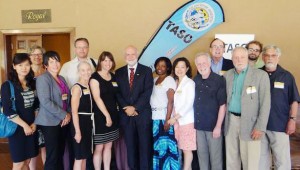 Nine faculty members and three Ph.D. students from the School of Social Work (SSW) traveled to Kampala, Uganda, July 15-19 to participate in the 18th biennial conference of the International Consortium of Social Development. Scott DiLisi, the U.S. ambassador to Uganda and an alumnus of the University, held a special luncheon for the University of Minnesota delegates attending the conference.
Nine faculty members and three Ph.D. students from the School of Social Work (SSW) traveled to Kampala, Uganda, July 15-19 to participate in the 18th biennial conference of the International Consortium of Social Development. Scott DiLisi, the U.S. ambassador to Uganda and an alumnus of the University, held a special luncheon for the University of Minnesota delegates attending the conference.
Pictured above, left to right, are Hoa Nguyen, Juliana Carlson, Colleen Fisher, Ross VeLure Roholt, Barbara W. Shank, Elizabeth Lightfoot, Ambassador DiLisi, Priscilla Gibson, Hee Yun Lee, Peter Dimock, David Hollister, James Reinardy, Alex Fink, and Michael Baizerman.
In the capital city near Lake Victoria, the University group shared their work on emerging issues in social development and visited agencies and organizations in a nation that faces major challenges–extensive poverty, HIV-AIDS, malaria, accelerating population growth with inadequate infrastructure, and vast unemployment.
The University of Minnesota was a founding member of the consortium, an interdisciplinary organization in which social work has played a particularly strong leadership role.
All nine SSW faculty members and three doctoral students presented papers. Their topics included global youth development, strategies for health accessibility, refugee housing, community-based participation in social development, study abroad and transformational learning, and theories of social development.
A highlight of the conference was the opening address by Livingstone Sewanyana, executive director of the Foundation for Human Rights Initiative based in Kampala, reported SSW professor and director James Reinardy.
“He gave a clear presentation on the challenges faced by Uganda,” said Reinardy. “His remarks, particularly on human rights, helped set the tone for the conference and for the conversations many of us had with social welfare and social service organizations there.”
Ambassador DeLisi’s lunch provided an opportunity to share ideas and research on social development.
Reinardy provided partial support to the SSW participants to jumpstart creation of an international cohort in the school and showcase their work internationally. Many combined the conference with site visits for their research.
SSW Associate Professor Lee selected to attend workshop and participate on panel
 Associate Professor Hee Yun Lee was competitively selected to attend “Excellence in Cancer Education and Leadership,” which is a 2-day workshop that will be held at the 37th Annual Conference of the Association of Pediatric Oncology Social Work. The workshop is aimed to improve the delivery of psychosocial care for oncology patients through intensive education of oncology social workers and to meet and exceed the recommendations of the Institute of Medicine (IOM) 2008 Report – “Cancer Care for the Whole Patient: Meeting Psychosocial Health Needs.” Associate Professor Lee is a faculty member of the U of MN Masonic Cancer Center and plans to improve the delivery of psychosocial care at the center in collaboration with the Association of Oncology Social Work.
Associate Professor Hee Yun Lee was competitively selected to attend “Excellence in Cancer Education and Leadership,” which is a 2-day workshop that will be held at the 37th Annual Conference of the Association of Pediatric Oncology Social Work. The workshop is aimed to improve the delivery of psychosocial care for oncology patients through intensive education of oncology social workers and to meet and exceed the recommendations of the Institute of Medicine (IOM) 2008 Report – “Cancer Care for the Whole Patient: Meeting Psychosocial Health Needs.” Associate Professor Lee is a faculty member of the U of MN Masonic Cancer Center and plans to improve the delivery of psychosocial care at the center in collaboration with the Association of Oncology Social Work.
Lee was also invited to participate on a Special Emphasis Panel (SEP) to review grant applications submitted to the National Center for Chronic Disease Prevention & Health Promotion of the Centers for Disease Control and Prevention (CDC). SEP Panel will evaluate the scientific and technical merit of research proposals submitted to CDC in response to Request for Application (RFA) DP09-0010501SUPP13: Health Promotion and Disease Prevention Research Centers: Special Interest Project Competitive Supplements (SIPS). The panel will specifically review applications for SIPS on the topic of “Understanding the Barriers to Colorectal Cancer Screening among Asian Subgroups (SIP13-067)” and “Feasibility Study of the New Clinical Measure of Colorectal Cancer Screening for Federally Qualified Health Centers (SIP13-069).”
Mark Umbreit produces film and book about forgiveness
 In conjunction with Emergence Pictures in Minnesota and the Fetzer Institute in Michigan, Dr. Mark Umbreit, director of the Center for Restorative Justice & Peacemaking in the School of Social Work, has produced a broadcast-quality 27 minute film on “Being With the Energy of Forgiveness.”
In conjunction with Emergence Pictures in Minnesota and the Fetzer Institute in Michigan, Dr. Mark Umbreit, director of the Center for Restorative Justice & Peacemaking in the School of Social Work, has produced a broadcast-quality 27 minute film on “Being With the Energy of Forgiveness.”
The film is based on Umbreit’s research and practice with homicide survivors, offenders and communities, including Native Americans and Somalis in Minneapolis, and clergy sex abuse in Milwaukee. The film features four main case stories that identify lessons learned from restorative justice dialogue with former enemies.
Later this year, Wipf and Stock Publishers in Oregon will publish Umbreit’s book on the same topic. It was co-written with Jennifer Blevins, Ph.D. student and research associate with the center.
